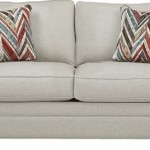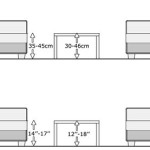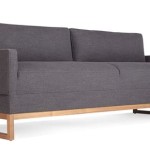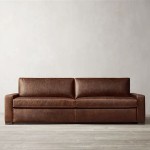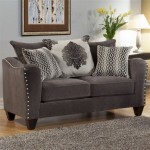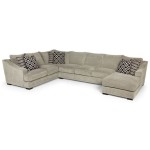Furniture Turkey: A Deep Dive into the Sofa Industry
The Turkish furniture industry has emerged as a significant player in the global market, particularly in the production and export of sofas. Several factors contribute to Turkey's growing prominence, including skilled craftsmanship, competitive pricing, strategic geographical location, and an increasing adoption of modern manufacturing techniques. This article will examine the key aspects of the Turkish sofa industry, focusing on its production capabilities, quality control measures, design trends, export dynamics, and the challenges and opportunities it faces in the international arena.
Turkey's historical roots in furniture making, combined with a resourceful workforce, provide a strong foundation for the sofa manufacturing sector. Generations of artisans have passed down traditional techniques, which are now often integrated with contemporary production processes. This blend of tradition and innovation allows Turkish manufacturers to produce a diverse range of sofa styles, catering to various consumer preferences and price points.
The industry is characterized by a mix of large-scale manufacturers and smaller, family-owned workshops. While larger companies often focus on mass production for export markets, smaller workshops tend to specialize in custom-made or high-end sofas, capitalizing on the demand for unique and personalized furniture pieces. This diverse ecosystem allows the Turkish sofa industry to adapt to changing market demands and compete effectively across different segments.
Geographically, the key furniture production centers in Turkey are located in cities like Istanbul, Bursa, Ankara, and Izmir. These cities offer access to skilled labor, infrastructure, and raw material suppliers, which are crucial for efficient sofa production. The government has also actively supported the furniture industry through various initiatives, including investment incentives, export promotion programs, and quality certification schemes.
Key Aspects of Turkish Sofa Production
The sofa manufacturing process in Turkey is similar to that of other major furniture-producing countries. It typically involves several stages, including frame construction, upholstery, cushioning, and finishing. However, Turkish manufacturers often emphasize the use of high-quality materials, such as solid wood frames, durable fabrics, and premium cushioning materials, to ensure the longevity and comfort of their sofas.
Frame construction is a critical step in sofa production, as it determines the structural integrity and stability of the piece. Many Turkish manufacturers use kiln-dried hardwood, such as beech or oak, for sofa frames. Kiln drying reduces the moisture content of the wood, minimizing the risk of warping or cracking over time. The frames are typically joined using screws, glue, and dowels to create a sturdy and durable foundation.
Upholstery is another important aspect of sofa production, as it significantly affects the aesthetics and comfort of the piece. Turkish manufacturers offer a wide range of upholstery options, including natural fabrics like cotton, linen, and wool, as well as synthetic fabrics like polyester and microfiber. Leather upholstery is also popular, particularly for high-end sofas. The selection of upholstery material depends on factors such as durability, stain resistance, texture, and color.
Cushioning materials play a crucial role in providing comfort and support. Turkish sofa manufacturers typically use a combination of foam, fiberfill, and feathers for cushioning. High-density foam is often used for seat cushions to provide firm support, while fiberfill and feathers are used for back cushions and throw pillows to create a softer and more plush feel. The choice of cushioning materials depends on the desired level of comfort and support.
Finishing is the final stage of sofa production, involving details such as stitching, buttoning, and trimming. These details can significantly enhance the overall appearance and quality of the sofa. Turkish manufacturers often pay close attention to these finishing details, ensuring that the seams are straight, the buttons are securely attached, and the trimming is neatly applied.
Quality Control and Standards
Maintaining high quality standards is essential for the Turkish sofa industry to compete effectively in the global market. Turkish manufacturers have implemented various quality control measures throughout the production process to ensure that their sofas meet international standards and consumer expectations.
Quality control starts with the selection of raw materials. Turkish manufacturers carefully inspect all incoming materials, such as wood, fabrics, and cushioning, to ensure that they meet the required specifications. They also work closely with their suppliers to ensure that the materials are free from defects and conform to environmental standards.
Throughout the production process, quality control inspectors monitor each stage to identify and correct any defects or deviations from the specifications. This includes checking the frame construction, upholstery, cushioning, and finishing. Regular inspections are conducted to ensure that the sofas are being produced to the required standards.
Many Turkish sofa manufacturers have obtained certifications from international organizations, such as ISO 9001 for quality management and ISO 14001 for environmental management. These certifications demonstrate a commitment to quality and sustainability, which can enhance the credibility and competitiveness of Turkish sofas in the global market.
Furthermore, the Turkish Standards Institution (TSE) plays a vital role in setting and enforcing quality standards for furniture products, including sofas. TSE certification ensures that the sofas meet the minimum safety and performance requirements, providing consumers with assurance of quality and reliability.
Design Trends and Innovation
The Turkish sofa industry has been increasingly focusing on design innovation to cater to evolving consumer preferences and trends. Turkish designers are incorporating modern aesthetics, ergonomic considerations, and sustainable materials into their sofa designs.
One prominent trend is the adoption of minimalist and contemporary designs. Clean lines, simple shapes, and neutral colors are becoming increasingly popular, reflecting a desire for understated elegance and versatility. These designs often incorporate modular components, allowing consumers to customize their sofas to fit their specific needs and spaces.
Ergonomics is also gaining importance in sofa design. Turkish manufacturers are focusing on creating sofas that provide optimal support and comfort, taking into account factors such as seat height, seat depth, and backrest angle. Ergonomic sofas can help to reduce back pain and improve posture, making them a desirable option for consumers who spend a lot of time sitting.
Sustainability is another key driver of innovation in the Turkish sofa industry. Turkish manufacturers are increasingly using eco-friendly materials, such as recycled wood, organic cotton, and water-based finishes, to reduce the environmental impact of their products. They are also adopting sustainable manufacturing practices, such as waste reduction and energy efficiency.
Collaboration with international designers and participation in international furniture fairs are also contributing to the design innovation in the Turkish sofa industry. These collaborations and events provide Turkish manufacturers with opportunities to learn about the latest design trends and technologies, as well as to showcase their own designs to a global audience.
The industry also exhibits adaptability in terms of embracing technological advancements. CAD/CAM software is used for sofa design and manufacturing, allowing for precise cutting and efficient material utilization. CNC machinery is also used for frame construction, ensuring accuracy and consistency. Modern upholstery techniques, such as automated sewing and cutting, also contributes to higher efficiency rates and improved quality standards.
The diverse cultural influences present in Turkey contribute to the unique design elements incorporated into Turkish sofas. Ottoman-inspired designs, with intricate patterns and embellishments, are still prevalent, though often modernized for contemporary tastes. This blend of traditional and contemporary styles is a distinctive feature of the Turkish sofa industry.
The industry's quick adaptation to changing consumer preferences is another significant characteristic. Online sales and e-commerce have prompted manufacturers to adopt more flexible production strategies to meet the demands of individual customers. Customization options, such as fabric choices, leg styles, and cushion firmness, are increasingly offered, allowing consumers to create sofas that perfectly match their needs and aesthetic preferences.
The Turkish sofa industry, therefore, is characterized by continuous innovation and adaptation, ensuring its continued relevance in the ever-evolving global furniture market.

Okyanus Classic Sofa Set Turkey Furniture Luxury Models

Lorin Gold Classic Sofa Set Turkey Furniture Luxury Models

Balde Classic Sofa Set Turkey Furniture Luxury Models

Buse 92 5 Wide Tufted Traditional Sofa Istanbul Furniture Home Of Unique Turkish

Şaheste Wow Classic Sofa Set Turkey Furniture Luxury Models

Lotus Classic Sofa Set Turkey Furniture Luxury Models

Victorian Classic Sofa Sets Designs Pictures Living Room Furniture Of Turkey Set Ensembles Luxury

New Belinda Classic Sofa Set Turkey Furniture Luxury Models

Carmen Living Room Set Istanbul Furniture Home Of Unique Turkish

Medusa Classic Sofa Set Turkey Furniture Luxury Models

